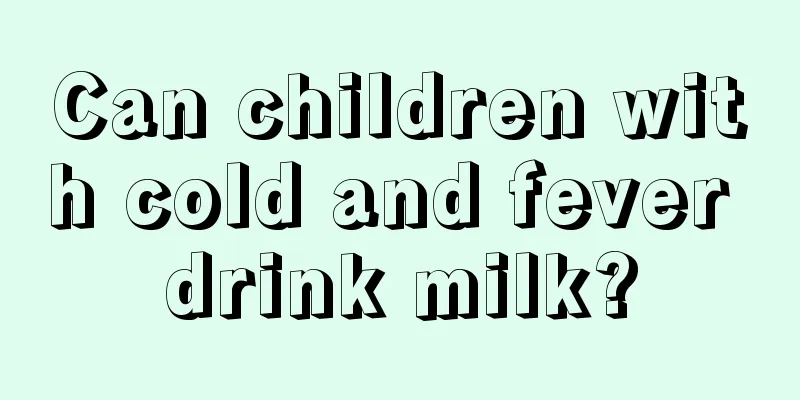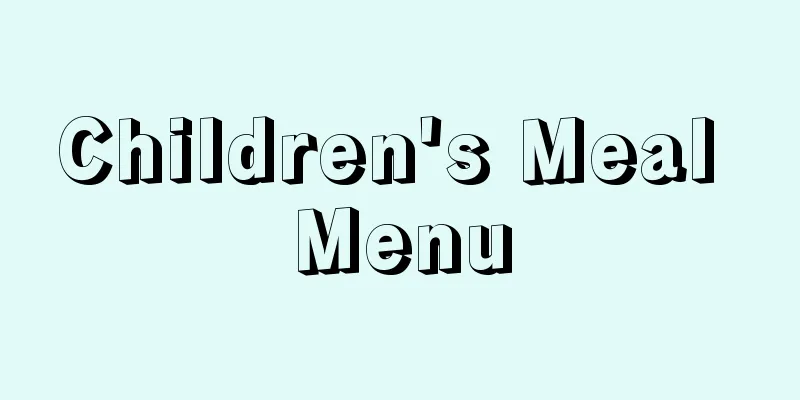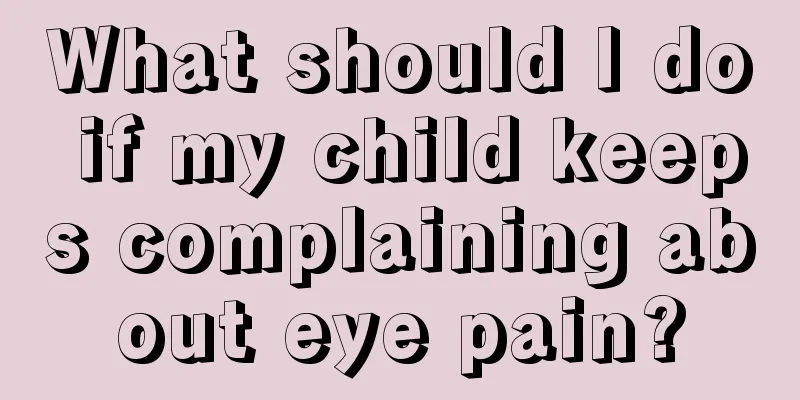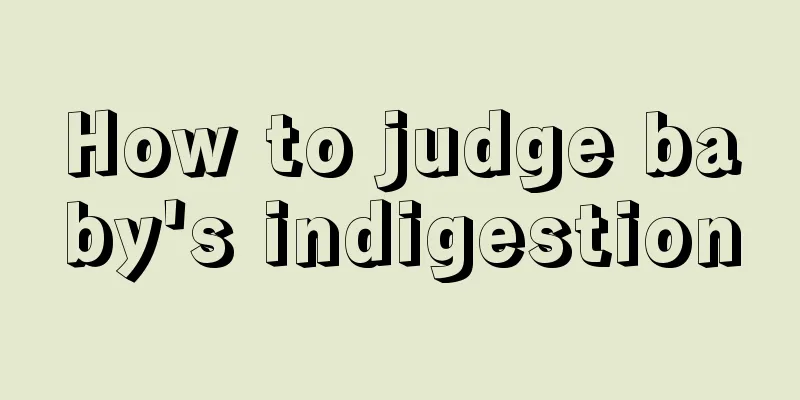What is the reason for white bumps on baby's gums?

|
White bumps will appear on the baby's gums between the ages of 0-1. Generally, this is caused by hyperplasia of the baby's oral mucosa. Generally, no special treatment is required. Try not to pick or scratch it, as it can easily cause mucosal infection in the baby and cause great harm to the child's oral health. Usually, you should keep the baby's gums healthy, eat more vitamin-rich foods, and use gauze to clean the baby's mouth. What is the reason for white bumps on baby's gums? This is a sign of steatocheilitis. Steatocheilitis refers to the white spherical particles the size of millet or rice that grow on the gums of a newborn or infant under six months old. They look very much like small teeth. In fact, this is not a tooth, but the proliferation of oral mucosal epithelial cells during the development of teeth. "Horse teeth" are a normal physiological phenomenon and generally do not require special treatment. "Milk teeth" will not affect the baby's breastfeeding, nor will they affect the normal development of teeth. They are harmless and will fall off naturally after friction from eating and breastfeeding. No treatment is required. No treatment is required. Do not pick it with a needle or wipe it with a towel, otherwise it will easily damage the mucous membrane and cause infection. How to protect your baby's teeth Infancy refers to the period from when the baby is one month old to three years old. The biggest change in the oral cavity during this period is from having no teeth to growing teeth. Many parents often ignore the dental health of their babies during this period. Maintaining dental health during infancy and childhood is conducive to balanced nutrition intake, developing good eating habits, and ensuring normal growth and development of the whole body. Tooth development Infancy is a critical period for learning language. Healthy and neatly arranged deciduous teeth are the physiological basis for the baby's normal pronunciation. The following problems often occur in infants and young children's teeth and should attract the attention of parents. Precautions 1. From birth, parents should clean their baby's mouth. After the baby is born, parents should wipe the baby's mouth with soft gauze every day, which can effectively prevent oral Candida albicans infection (commonly known as "thrush"). After the teeth erupt, you can use gauze or a soft-bristled brush to gently scrub your baby's mouth and teeth. When multiple teeth have erupted, parents can brush their baby's teeth twice a day with a fingertip brush or a soft-bristled brush, and make sure to clean all the tooth surfaces of the upper and lower jaws, especially the areas close to the gum margin. A 2-year-old baby will want to brush his teeth by himself, but parents should understand that the baby's fine motor skills of the hands at this age have not yet been formed, and he cannot really brush his teeth cleanly. Therefore, parents should help their babies brush their teeth at least twice a day. Babies as old as 3 years old can be taught the correct way to brush their teeth. Sometimes babies will not realize it even after they have learned it, so parents must supervise them. 2. Improper feeding can harm the dental health of infants and young children. Breast milk is the best natural food for infants and young children. Compared with artificial feeding, the risk of caries in deciduous teeth is lower during breastfeeding. The feeding posture will affect the growth and development of the infant's maxillofacial area. It is best to feed while holding the baby. The bottle is an artificial feeding utensil. Placing the bottle too high or too low may cause tooth and jaw deformities. When bottle-feeding, you should choose a suitable nipple to avoid one with a hole that is too large, which will cause milk to flow out without sucking, and the baby's chewing muscles will not get proper exercise, which is not conducive to the normal development of the mouth and jaw. After the deciduous teeth erupt, do not let your baby hold a bottle containing sweet milk or sweet drinks for a long time, especially do not let your baby sleep with the bottle in his mouth, otherwise it will cause caries in infants and young children. After the age of one, the use of bottles should be reduced as much as possible, and only plain water and sugar-free milk should be filled in the bottles. Sugary liquids (such as sweetened milk, juice, honey water, etc.) should be fed with a cup or spoon. Bottle use should be stopped between 1.5 and 2 years old. Because long-term bottle-feeding can not only easily cause dental caries, but also hinder the development of children's chewing function. Whether breastfed or bottle-fed, babies should not fall asleep while feeding, because long-term falling asleep while feeding may cause the lower jaw to protrude excessively and cause misalignment of the upper and lower jaws. Clinically, many infants suffer from underbite (underbite) due to sleeping while feeding. 3. Do not pass germs to your baby. Saliva is a vehicle for the spread of bacteria. The person feeding the baby can transmit pathogenic bacteria in the mouth to the baby by chewing the food before feeding it, and by putting the pacifier or spoon in his or her mouth to test the temperature. The earlier the caries-causing bacteria are transmitted to the baby, the more susceptible the baby is to caries. Therefore, caregivers should pay attention to feeding hygiene, correct bad feeding methods, and pay attention to their own oral hygiene to avoid spreading pathogens to the baby. 4.1 Babies aged 3 years and above do not have good motor skills and limb coordination, and lack experience in dealing with things, so guardians should always be careful to prevent accidents that may damage the baby's teeth. 5. Babies should pay attention to a balanced diet and not be picky about food, especially eating more vegetables and fresh fruits that are high in fiber and rich in nutrition. This will not only help the teeth to clean themselves and be less prone to caries, but will also be beneficial to the growth and development of the oral and maxillofacial area, promote neat arrangement of teeth, and enhance chewing function. 6. Infants and young children should receive oral health examinations and oral hygiene guidance every six months starting from the time their teeth erupt. Parents should take infants and young children to the hospital for a dental check-up within 6 months after the first tooth erupts. The doctor should help determine the eruption of the child's teeth, assess their risk of caries, and provide targeted oral hygiene guidance. If oral diseases such as caries are found, they should be diagnosed and treated as soon as possible. Have your teeth checked every six months thereafter. |
<<: What is the cause of blue veins on the child's body?
>>: What are the symptoms of a child with low IQ?
Recommend
Symptoms of a 2-year-old baby getting a fish bone stuck in his throat
People cannot express their physical feelings whe...
What to do if a child has enlarged nasal conchae
There is probably only one child in every family ...
What are the clinical manifestations of heart failure in infants and young children?
Infants and young children can also suffer from h...
How to improve children's rough skin
Children's skin should be smooth, white and t...
What are the precautions for postpartum care of children?
Some mothers lack a correct understanding of thei...
What causes pimples on baby's face?
We all know that in the process of taking care of...
One year old baby has dry stool
The health of babies is the concern and worry of ...
How much sleep does a 15-month-old baby need?
Sleep is a necessary way for the human body to ge...
Children's mouth corners are sore and picky eating is related
The spring season is relatively dry, so in such a...
Children's body itchy when sleeping at night
Mites and bacteria are everywhere, especially on ...
Baby's eyes are a little squinting
If you find that your baby has one eye strabismus...
Reasons for green stools in 2-month-old babies
There are many reasons why a 2-month-old baby'...
Why do four-year-old children become sleepy?
Children need more sleep than adults, and if thei...
How to tell if your child has asthma
Children's respiratory tract is very fragile,...
What to do if children have visual fatigue
Many children suffer from visual fatigue because ...









